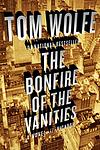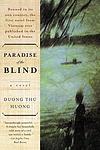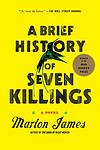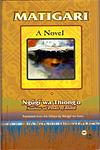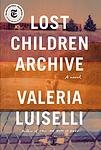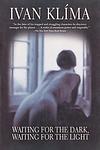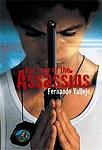The Greatest "Political, Fiction, Social & Cultural Fiction" Books Since 1980
Click to learn how this list is calculated.
This list represents a comprehensive and trusted collection of the greatest books. Developed through a specialized algorithm, it brings together 300 'best of' book lists to form a definitive guide to the world's most acclaimed books. For those interested in how these books are chosen, additional details can be found on the rankings page.
Genres
The "Political" category of books encompasses works that explore the theory, practice, and history of government and politics. These books may cover topics such as political ideologies, political systems, political institutions, political movements, and political leaders. They may also examine the relationship between politics and other areas of society, such as economics, culture, and international relations. Political books can be both informative and thought-provoking, offering readers insights into the complexities of the political world and the challenges of governing in a democratic society.
Social & Cultural Fiction is a literary category that encompasses novels and stories that delve into the complexities of society and culture, exploring themes such as class, race, gender, and identity within specific social contexts. These narratives often provide a lens through which readers can examine the intricacies of human relationships and the impact of cultural norms and societal structures on individuals and communities. By offering a fictional yet reflective portrayal of real-world social dynamics, this genre invites readers to gain a deeper understanding of the diverse experiences that shape our world. Authors in this category frequently use their characters and settings to comment on contemporary issues, challenge prevailing ideologies, and provoke thought about the possibility of social change, making Social & Cultural Fiction a powerful tool for empathy and a mirror for the ever-evolving human condition.
Countries
Date Range
Reading Statistics
Click the button below to see how many of these books you've read!
Download
If you're interested in downloading this list as a CSV file for use in a spreadsheet application, you can easily do so by clicking the button below. Please note that to ensure a manageable file size and faster download, the CSV will include details for only the first 500 books.
Download-
1. White Teeth by Zadie Smith
This novel follows the lives of two friends, a working-class Englishman and a Bangladeshi Muslim, living in London. The story explores the complex relationships between people of different races, cultures, and generations in modern Britain, with themes of identity, immigration, and the cultural and social changes that have shaped the country. The narrative is enriched by the characters' personal histories and the historical events that have shaped their lives.
-
2. American Pastoral by Philip Roth
This novel tells the story of Seymour "Swede" Levov, a successful Jewish-American businessman and former high school athlete from Newark, New Jersey. Levov's happy and conventional upper middle class life is ruined by the domestic social and political turmoil of the 1960s during the presidency of Lyndon B. Johnson, which in the novel is seen through the eyes of the narrator, Nathan Zuckerman, a budding writer who idolizes the Levovs. The novel portrays the impact of this turmoil on Levov and his family, particularly his rebellious daughter who becomes involved in revolutionary political activities.
-
3. Bonfire of the Vanities by Tom Wolfe
This novel follows the life of a successful Wall Street bond trader who, after a wrong turn in the Bronx, finds his life spiraling out of control. After a hit-and-run accident in a predominantly black neighborhood, he becomes the target of a political witch hunt, exacerbating racial tensions in the city. As the protagonist's world unravels, the story provides a satirical commentary on 1980s New York City, exploring themes of racism, classism, politics, and greed.
-
4. Underworld by Don DeLillo
"Underworld" is a sweeping narrative that spans from the 1950s to the end of the 20th century, exploring the interconnectedness of events and the impact of the Cold War on American society. The story revolves around a diverse group of characters, including a waste management executive, a graffiti artist, a nun, and a baseball collector, among others. These characters' lives intertwine in unexpected ways, illustrating the complex web of relationships and influences that shape our world. The novel is renowned for its vivid portrayal of historical events and its profound examination of themes such as memory, technology, and waste.
-
5. Waiting for the Barbarians by J M Coetzee
The novel is set in a small frontier town of an unnamed empire, where the magistrate lives a life of civil service and relative peace. His world is disrupted when the Empire declares a state of emergency due to rumors of barbarian uprising. The magistrate becomes a critic of the Empire's brutal and inhumane methods of dealing with the perceived threat, which leads to his arrest and torture. As he tries to understand his role in the vast political machinery, he also grapples with questions of power, justice, and humanity.
-
6. The War of the End of the World by Mario Vargas Llosa
The book is a historical novel that recounts the War of Canudos, a conflict in late 19th-century Brazil over religious fanaticism, political instability, and social inequality. The story is centered around an apocalyptic movement led by a charismatic, messianic figure who convinces the poor and downtrodden to rise up against the Brazilian government, leading to a brutal and bloody conflict. The book explores themes of faith, power, poverty, and the destructive potential of fervent belief.
-
7. The Children of Men by P. D. James
Set in a dystopian future where mankind has become infertile, the novel centers on a history professor who becomes involved with a group of revolutionaries seeking to overthrow the oppressive government. As the world descends into chaos due to the impending extinction of the human race, a miraculous pregnancy offers a glimmer of hope. The professor must protect the pregnant woman and navigate the dangerous political landscape, while grappling with the implications of a world without children.
-
8. The Line of Beauty by Alan Hollinghurst
Set in the 1980s during the era of Margaret Thatcher's conservative government in Britain, this novel follows the life of a young gay man named Nick Guest. Coming from a middle-class background, he moves into the home of his wealthy friend's family and becomes infatuated with the opulence and power of the upper class. As he navigates his way through this new world, he also explores his sexuality, all while dealing with the societal and political implications of the AIDS crisis.
-
9. Paradise of the Blind by Dương Thu Hương
"Paradise of the Blind" is a poignant tale of a young Vietnamese woman's journey through life amidst the socio-political upheavals of her country. The narrative follows her struggle to reconcile her familial duties with her own personal aspirations, as she navigates through the complexities of her relationships with her mother and aunt. The book provides a critical examination of the Communist regime in Vietnam, its impact on the traditional Vietnamese family structure, and the cultural and societal changes it brought about.
-
10. On Beauty by Zadie Smith
This novel is a contemporary, multicultural exploration of family life, love, and identity. It follows the lives of two mixed-race families, the Belseys and the Kipps, who are linked by their shared professions in academia and a complex web of marital and extramarital relationships. The story is set against the backdrop of Wellington, a fictional New England town, and explores themes of race, class, and cultural clash. It also delves into the world of academia, examining the politics and conflicts that arise in that environment.
-
11. The White Tiger by Aravind Adiga
"The White Tiger" is a darkly humorous novel set in modern-day India that explores the country's class struggle through the eyes of an ambitious and cunning protagonist. Born in a poor village, he moves to Delhi to work as a chauffeur for a rich family. He eventually breaks free from his life of servitude by committing an act of shocking violence, and uses his newfound freedom to become a successful entrepreneur in Bangalore. The story, told through a series of letters written to the Chinese Premier, is a scathing critique of India's social and economic disparities, and the corruption that permeates all levels of society.
-
12. A Brief History of Seven Killings by Marlon James
"A Brief History of Seven Killings" is a multi-voiced novel that explores the attempted assassination of a world-famous reggae singer and its aftermath. The narrative spans decades, starting from the turbulent 1970s in Jamaica through the crack wars in 1980s New York to the changing world of the 1990s. The story is told from the perspectives of various characters, including gangsters, journalists, and CIA agents, providing a complex and gritty insight into the violent underbelly of Jamaican politics and the far-reaching influence of the drug trade.
-
13. Shame by Salman Rushdie
"Shame" is a novel that explores the political and social climate of post-colonial Pakistan through the intertwined lives of three families. The story is a blend of magical realism and historical fiction, focusing on themes of shame, identity, and power. The narrative is laced with satire and explores the consequences of living in a society where honor is prized above all else. The story unfolds in a non-linear fashion, giving readers a deep insight into the complex socio-political dynamics of a nation in transition.
-
14. I Served The King Of England by Bohumil Hrabal
"I Served The King Of England" is a captivating novel that follows the life of a young Czech waiter named Ditie, who dreams of becoming a millionaire and serving the highest-ranking clientele. Set against the backdrop of World War II and the Communist regime, the story takes readers on a journey through Ditie's experiences in various hotels and restaurants, his encounters with eccentric characters, and his pursuit of love and success. With humor, wit, and a touch of satire, the book explores themes of ambition, identity, and the impact of historical events on an individual's life.
-
15. Happy Moscow by Andrey Platonov
"Happy Moscow" is a satirical novel set in the Soviet Union during the height of Stalinist rule, following the life of a young woman, Moscow Chestnova, who is named after the capital city. Despite the harsh realities of life under an authoritarian regime, she maintains a positive and optimistic outlook, symbolizing the Soviet Union's propaganda that promoted an image of a happy and prosperous society. The novel, through its characters and their experiences, explores the paradoxes and contradictions of the Soviet society, challenging the official narrative of happiness and prosperity.
-
16. Democracy by Joan Didion
This book offers a critical and insightful view of American politics and society through the lens of a tumultuous love story set amidst the backdrop of the Vietnam War. The narrative follows a wealthy and influential family, their political maneuverings, and their personal struggles. The book explores themes such as the complexity of human relationships, the nature of power and democracy, and the impact of war on individuals and society, all while providing a biting critique of American political life and culture.
-
17. Half of Man is Woman by Zhang Xianliang
This novel provides a deeply personal account of the author's experiences during China's Cultural Revolution and his subsequent imprisonment in a labor camp. The protagonist struggles with the harsh realities of his imprisonment, including starvation and physical abuse, while also grappling with his own identity and the societal expectations of masculinity. His release and subsequent marriage only further complicate his quest for self-understanding, as he navigates the challenges of reintegrating into society and maintaining a relationship with a woman who has her own traumatic past.
-
18. Ancestral Voices by Etienne van Heerden
"Ancestral Voices" is a haunting novel set in South Africa during the apartheid era. The story follows a young boy who grows up in a small rural town, navigating a complex web of familial relationships and secrets. As he matures, he becomes increasingly aware of the racial and social injustices that surround him. The book explores themes of identity, heritage, and the harsh realities of life under apartheid, all weaved together with a deep sense of the mystical and the supernatural.
-
19. Matigari by Ngugi wa Thiong'o
"Matigari" is a novel set in a post-colonial African nation, where the protagonist, who is a freedom fighter, emerges from the forest after the country's liberation, intent on finding justice and peace. However, he finds a society still deeply entrenched in corruption and oppression. The narrative uses allegory and symbolism to explore themes of justice, truth, and the fight against inequality. The protagonist's quest for justice becomes a threat to the government, leading to a manhunt for a man who is merely a myth.
-
20. Lost Children Archive by Valeria Luiselli
"Lost Children Archive" by Valeria Luiselli is a novel that follows a family on a road trip from New York to Arizona. The parents are documentarians and are working on separate projects, while the children are preoccupied with their own interests. As they travel, the family becomes increasingly aware of the migrant crisis and the children's obsession with finding lost things takes on a new meaning. The novel explores themes of family, identity, and the power of storytelling.
-
21. Waiting for the Dark, Waiting for the Light by Ivan Klíma
The novel is set in the twilight of Communist rule in Czechoslovakia and follows the life of a television cameraman named Pavel. Despite his dreams of becoming a filmmaker and capturing the truth, he is trapped in a job that requires him to distort it. As the regime starts to crumble, Pavel grapples with the opportunities and challenges that freedom brings. He is forced to confront his past, his moral choices, and his dreams, leading to a deep exploration of the human condition and the struggle for personal and artistic freedom.
-
22. Disappearance by David Dabydeen
"Disappearance" is a novel about a young Indian man who moves to England to work as a carpenter in order to send money back to his family in India. However, he finds himself isolated and struggling to adapt to the unfamiliar culture, language, and climate. As he grapples with his identity and sense of belonging, he also becomes involved with an older woman, leading to a complex and fraught relationship. The book explores themes of immigration, cultural dislocation, race, and identity.
-
23. Our Lady of the Assassins by Fernando Vallejo
This novel is a dark and gripping exploration of life in Medellín, Colombia, during the height of the drug wars. The protagonist, a middle-aged writer, returns home after many years abroad, only to find his city ravaged by violence and death. He falls in love with two teenage assassins, who guide him through the underworld of the city, exposing him to the brutal realities of life in a place where human life has lost all value. The story is a bleak commentary on the devastating effects of drug trafficking and political corruption on society.
-
24. As If I Am Not There by Slavenka Drakulic
The book is a harrowing tale of a young woman's survival in a Balkan concentration camp during the Bosnian War. The protagonist, a school teacher, is taken from her village and forced into sexual slavery by the enemy soldiers. It's a stark exploration of the brutalities of war, the dehumanization of individuals, and the resilience of the human spirit. The narrative is a poignant commentary on the horrors of war and the resilience of women in the face of unimaginable atrocities.
-
25. Home Fire by Kamila Shamsie
"Home Fire" is a contemporary reimagining of Sophocles' Antigone set against the backdrop of modern-day London and Syria. The novel explores the lives of five characters caught in a complex web of love, loyalty, and sacrifice. The story revolves around two British-Pakistani families, each struggling with their own dilemmas related to identity, radicalism, and loyalty. One family is headed by a powerful politician who disowns his jihadist son, while the other consists of three orphaned siblings whose lives are turned upside down when their brother is accused of joining ISIS. The novel explores the consequences of their actions, questioning the extent to which one can go for love and loyalty.
Reading Statistics
Click the button below to see how many of these books you've read!
Download
If you're interested in downloading this list as a CSV file for use in a spreadsheet application, you can easily do so by clicking the button below. Please note that to ensure a manageable file size and faster download, the CSV will include details for only the first 500 books.
Download

